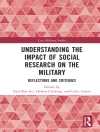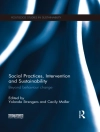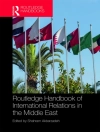Contamination of water supplies, whether by chemical, biological or radioactive agents, requires a rapid and effective response in order to reduce or avoid impact on the environment or consumers. Using seven major incident case studies (including the Milwaukee Cryptosporidium incident, Chernobyl and the UK Foot and Mouth outbreak), Water Contamination Emergencies: Can We Cope? looks at the complete handling of emergency incidents relating to water contamination emergencies. With contributions from experts involved in real life international incidents, the book also looks at: monitoring requirements; trying to prove the absence of contamination; novel approaches to screening analysis; health risks; the importance of efficient communication; the perception of the public; and the international height of alert situation with respect to potential terrorist acts. Anyone involved in water contamination emergencies, whether researchers and professionals in the water or health industries, or government agencies, should welcome this title as a review of lessons learnt in the past and as an identification of ways in which to improve response in the future.
Table of Content
The city of Milwaukee cryptosporidium outbreak: What really happened and how vulnerable are we?;
The WEM incident;
The Hungerford Fish Mortality;
The Foot and Mouth disease outbreak 2001;
Burnscrooks diesel incident;
Problems, perceptions and perfection – The role of the drinking water inspectorate in water quality incidents and emergencies;
Dealing with company, public and media perception;
Water related chemical incidents and their toxicological management;
Water and public health;
Environment agency analysis overview on contamination monitoring;
Contamination monitoring: Screening VS targeted analysis;
Field laboratory analysis for detection of unknown deliberately released contaminants;
Microbiological analysis: How soon can we have the results?;
Rapid toxkit microbiotests for water contamination emergencies;
Overview of handling emergencies: Some cautionary tales;
Radiological issues;
Communications;
Testing the system – Exercise is good for you!!;
Can we cope?;
Summary of workshop outputs;
Subject Index.












